On Boxing Day and the following day (Dec. 27th) a member of our research team, Amshu Dhakal based at Manmohan Memorial Institute of Health Sciences (MMIHSS), presented findings from our Nepal Federal Health System Project in Kathmandu. The event, Nepal Health Conclave 2024, was organised by the Ministry of Health and Population and supported by WHO (World Health Organization) Nepal and UNFPA. The event aimed to help strengthen Nepal’s health services. This year’s conclave, themed “Bridging the Gap Between Global Expertise and National Needs”, brought together Nepalese diaspora health professionals and national stakeholders to foster collaboration and innovation in health systems.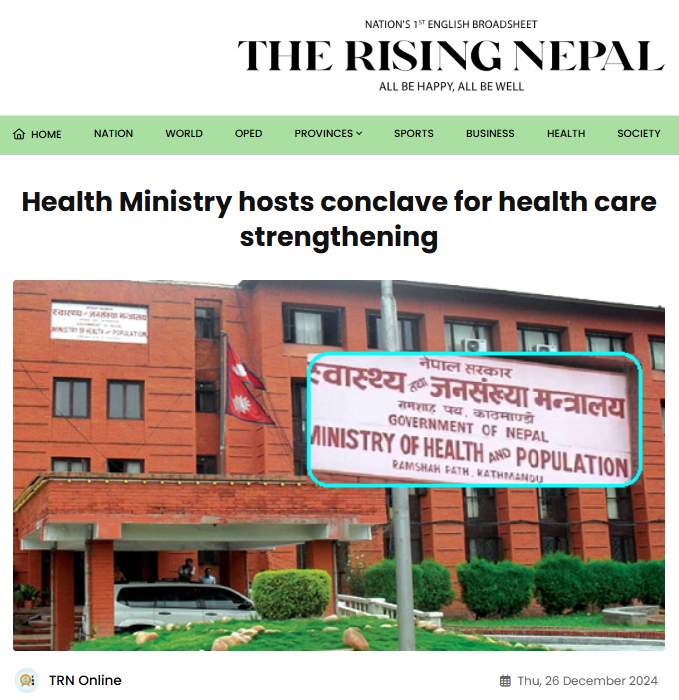
Amshu presented two posters at the event: (1) The Impact of Decentralisation on Health Systems: A Systematic Review of Reviews which systematically reviewed how decentralisation affects health systems globally, highlighting key opportunities and challenges across WHO’s six building blocks; and (2) Transforming the Health System in Nepal: The Impact of Federalisation, which examined how the transition to a federal system reshaped Nepal’s health system, identifying gaps, opportunities, and actionable recommendations for improvement.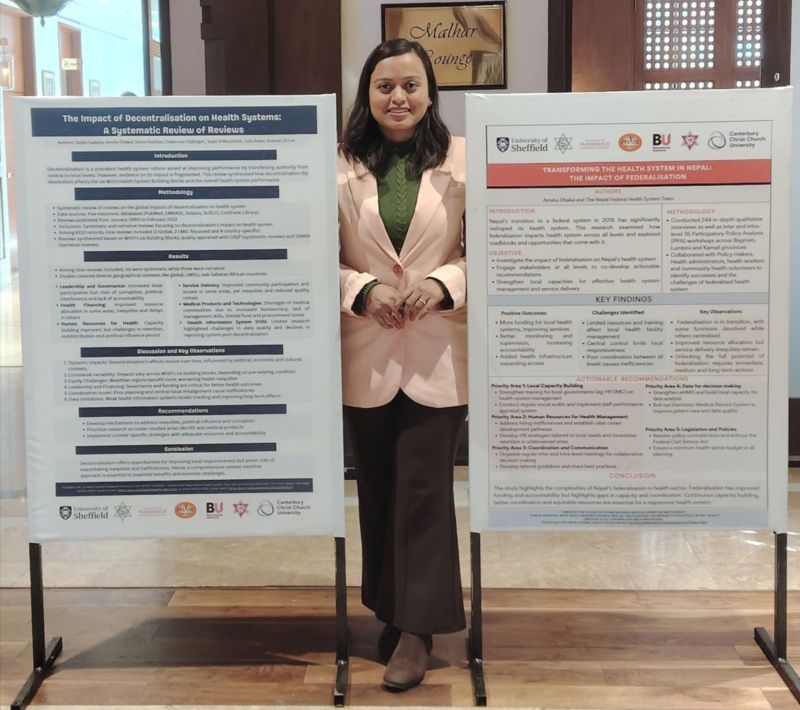
Our research team produced policy briefs in collaboration with government officials/stakeholders from all three levels of government. The policy briefs can be accessed at the website of our Nepal Federal Health System Project. This study was funded by the UK Health Systems Research Initiative [Grant ref. MR/T023554/1] to study the consequences for the health system of Nepal’s move from a centralised political system to a more federal government structure in 2015. This joint project was led by the University of Sheffield in collaboration with Bournemouth University, the University of Huddersfield, Canterbury Christ Church University and two institutions in Nepal, namely MMIHS and PHASE Nepal.
In late 2022 further funding was awarded by the Medical Research Foundation to Prof. Julie Balen, from Canterbury Christ Church University, to disseminate the findings of our UK Health Systems Research Initiative-funded research in Nepal. In terms of academic dissemination, we have published eight papers from this interdisciplinary project [1-8].
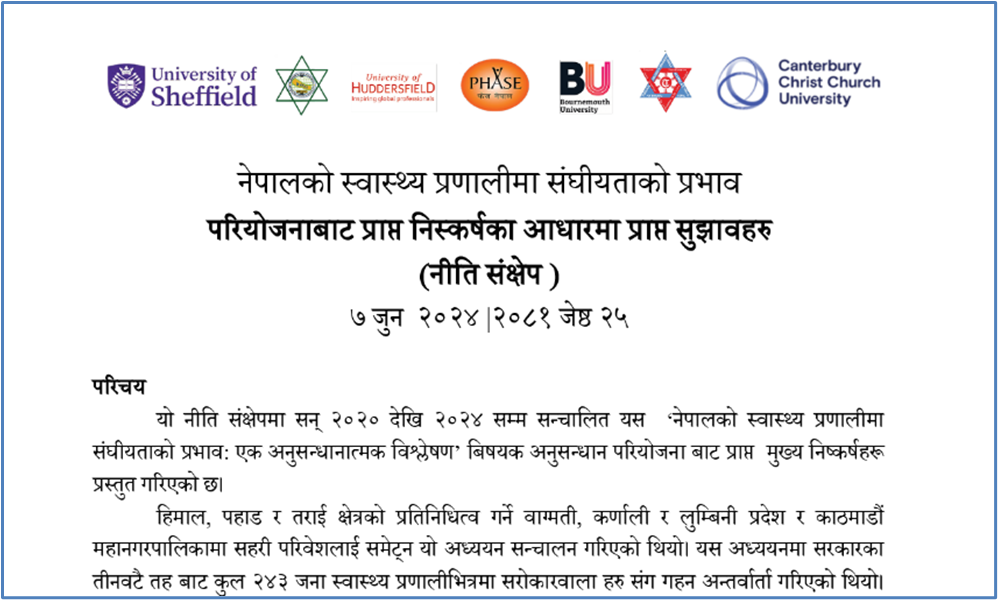 For and from this project, our team produced a comprehensive English-language policy brief as well as a Nepali-language version for politicians and policy-makers and civil servants in Nepal.
For and from this project, our team produced a comprehensive English-language policy brief as well as a Nepali-language version for politicians and policy-makers and civil servants in Nepal.
Prof. Edwin van Teijlingen
Centre for Midwifery & Women’s Health
References:
- Koirala, B., Rushton, S., Adhikary, P., Balen, J., et al. (2024) COVID-19 as a challenge to Nepal’s newly federalised health system: capacities, responsibilities, and mindsets, Asia Pacific Journal of Public Health (online first) https://doi.org/10.1177/1010539524125012.
- Sapkota, S., Rushton, S., van Teijlingen, E., et al. (2024) Participatory policy analysis in health policy and systems research: reflections from a study in Nepal. Health Research & Policy Systems, 22 (No.7) https://doi.org/10.1186/s12961-023-01092-5 .
- Wasti, S.P., van Teijlingen, E., Simkhada, P., et al. (2023) Selection of Study Sites and Participants for Research into Nepal’s Federal Health System, WHO South-East Asia Journal of Public Health 12(2):116-119.
- Sapkota, S., Dhakal, A., Rushton S., et al. (2023) The impact of decentralisation on health systems: a systematic review of reviews. BMJ Global Health 8:e013317. doi:10.1136/bmjgh-2023-013317.
- Wasti, S.P., van Teijlingen, E., Rushton, S., et al. (2023) Overcoming the Challenges Facing Nepal’s Health System During Federalisation: An Analysis of Health System Building Blocks, Health Research Policy & Systems 21(117) https://doi.org/10.1186/s12961-023-01033-2
- Sapkota, S., Panday, S., Wasti, S.P., et al. (2022) Health System Strengthening: The Role of Public Health in Federal Nepal, Journal of the Nepal Public Health Association 7(1):36-42.
- Adhikary, P., Balen, J., Gautam, S., et al. (2020) The COVID-19 pandemic in Nepal: Emerging evidence on the effectiveness of action by, and cooperation between, different levels of government in a federal system, Journal of Karnali Academy of Health Sciences 3 (3): 1-11.
- Rushton, S., Pandey, S., van Teijlingen, E., et al. (2021) An Investigation into the Impact of Decentralization on the Health System of Nepal. Journal of Manmohan Memorial Institute of Health Sciences, 7(1): 3–14. https://doi.org/10.3126/jmmihs.v7i1.43146
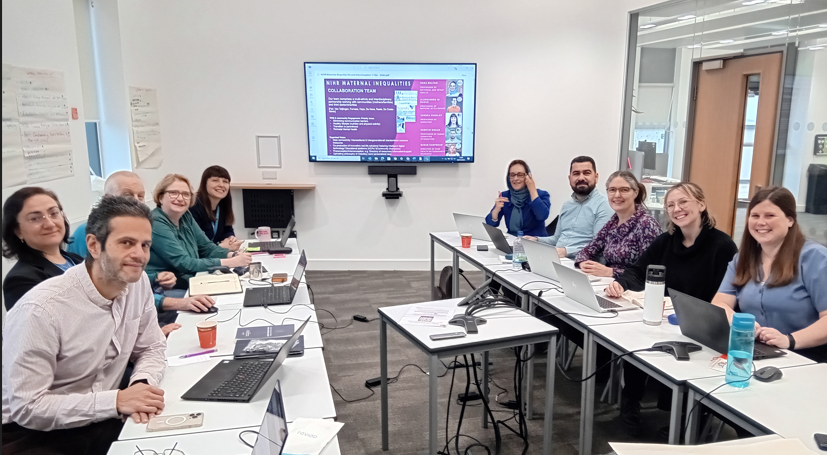 Today and yesterday (January 7-8) academics involved in MIHERC (Maternal and Infant Health Equity Research Centre), the successful interdisciplinary collaboration to address challenges in maternity care, met in Bournemouth. MIHERC is led by Sheffield Hallam University, along with Bournemouth University, South Yorkshire Digital Health Hub (SYDHH) and the Health Determinant Research Collaboration, Doncaster. In addition, a range of local and national partners are recognised. MIHERC is one of the nine groups of UK universities making up the new NIHR Challenge Maternity Disparities Consortium. This NIHR Consortium aims of tackling inequalities in maternity outcomes, focusing on inequalities before, during and after pregnancy.
Today and yesterday (January 7-8) academics involved in MIHERC (Maternal and Infant Health Equity Research Centre), the successful interdisciplinary collaboration to address challenges in maternity care, met in Bournemouth. MIHERC is led by Sheffield Hallam University, along with Bournemouth University, South Yorkshire Digital Health Hub (SYDHH) and the Health Determinant Research Collaboration, Doncaster. In addition, a range of local and national partners are recognised. MIHERC is one of the nine groups of UK universities making up the new NIHR Challenge Maternity Disparities Consortium. This NIHR Consortium aims of tackling inequalities in maternity outcomes, focusing on inequalities before, during and after pregnancy. Our second planning meeting highlighted our collective strengths including our expertise in community engagement and PPIE (Public & Patient Involvement & Engagement); intelligent digital solutions in maternity service delivery; research into under-served communities; and capacity building of both communities and maternity staff. The first planning meeting was held late last year at Sheffield Hallam University.
Our second planning meeting highlighted our collective strengths including our expertise in community engagement and PPIE (Public & Patient Involvement & Engagement); intelligent digital solutions in maternity service delivery; research into under-served communities; and capacity building of both communities and maternity staff. The first planning meeting was held late last year at Sheffield Hallam University.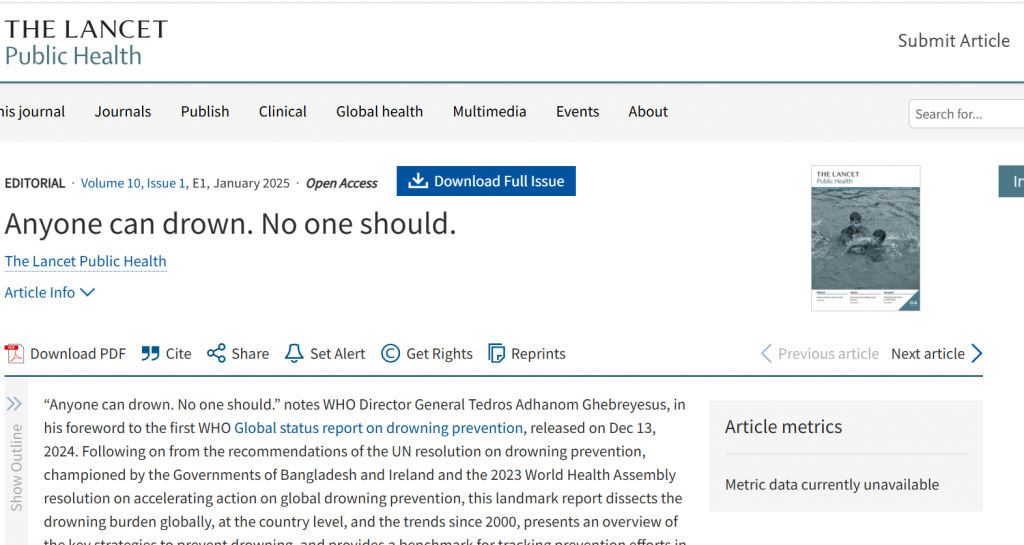


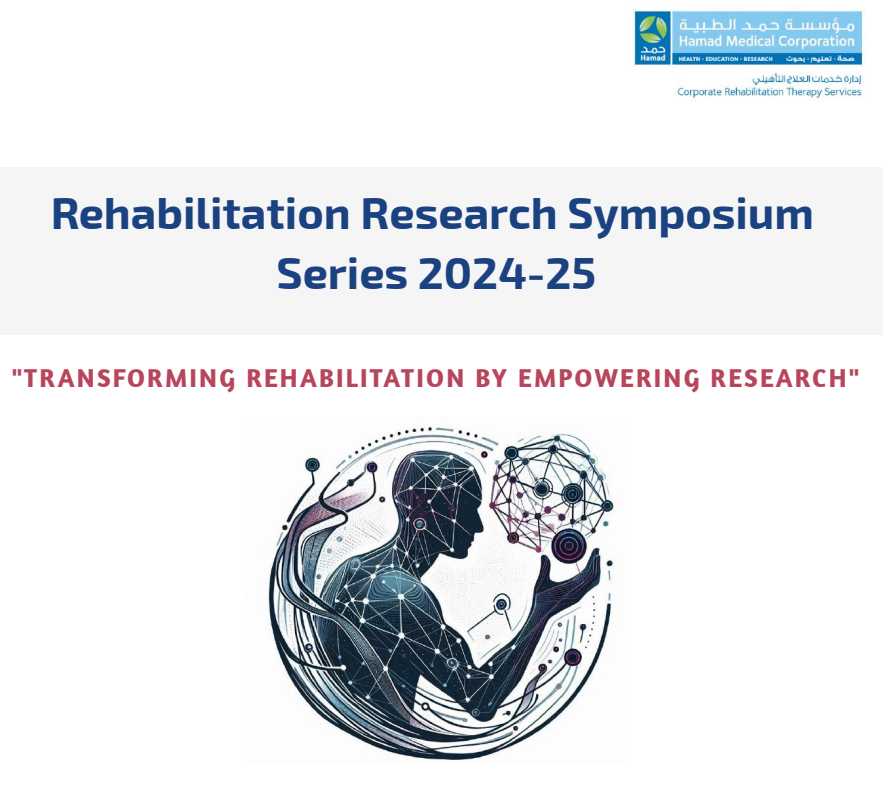

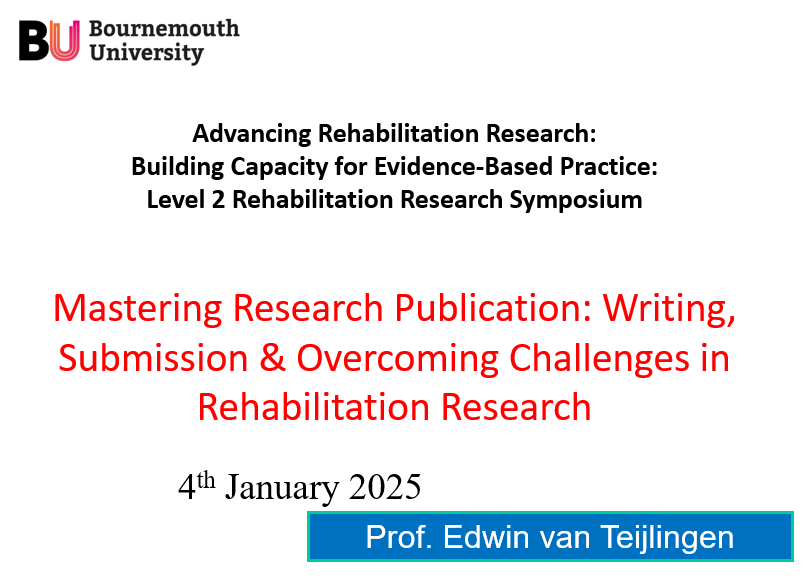
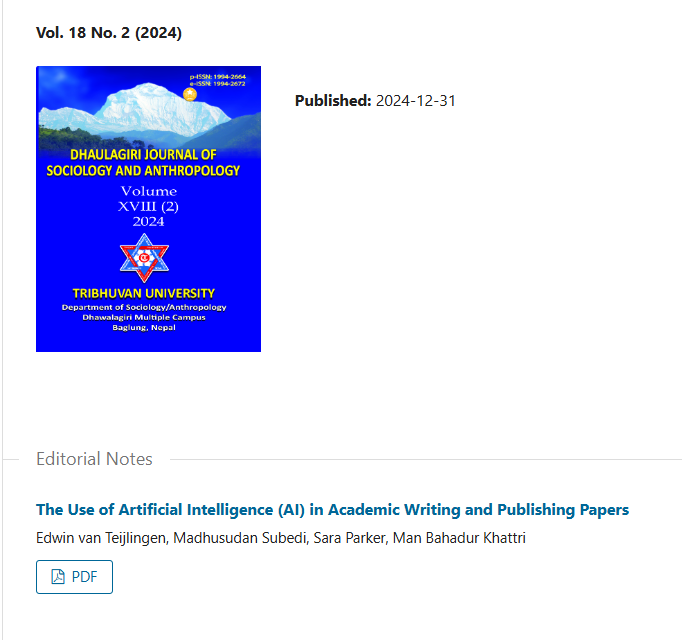




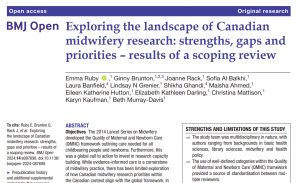

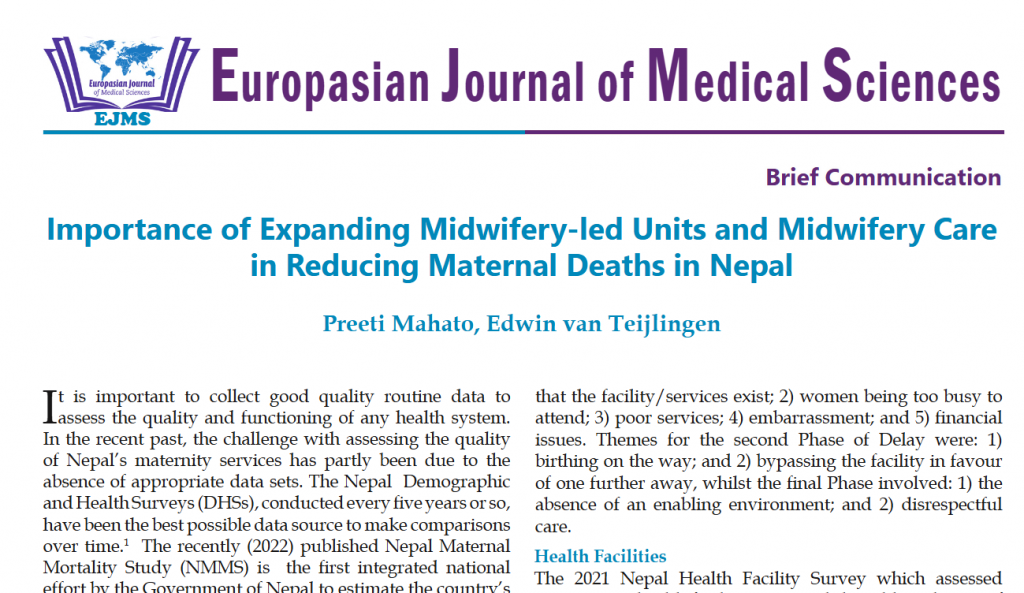
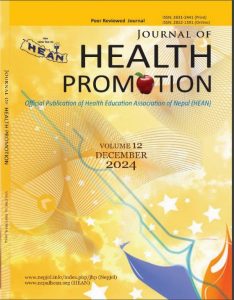
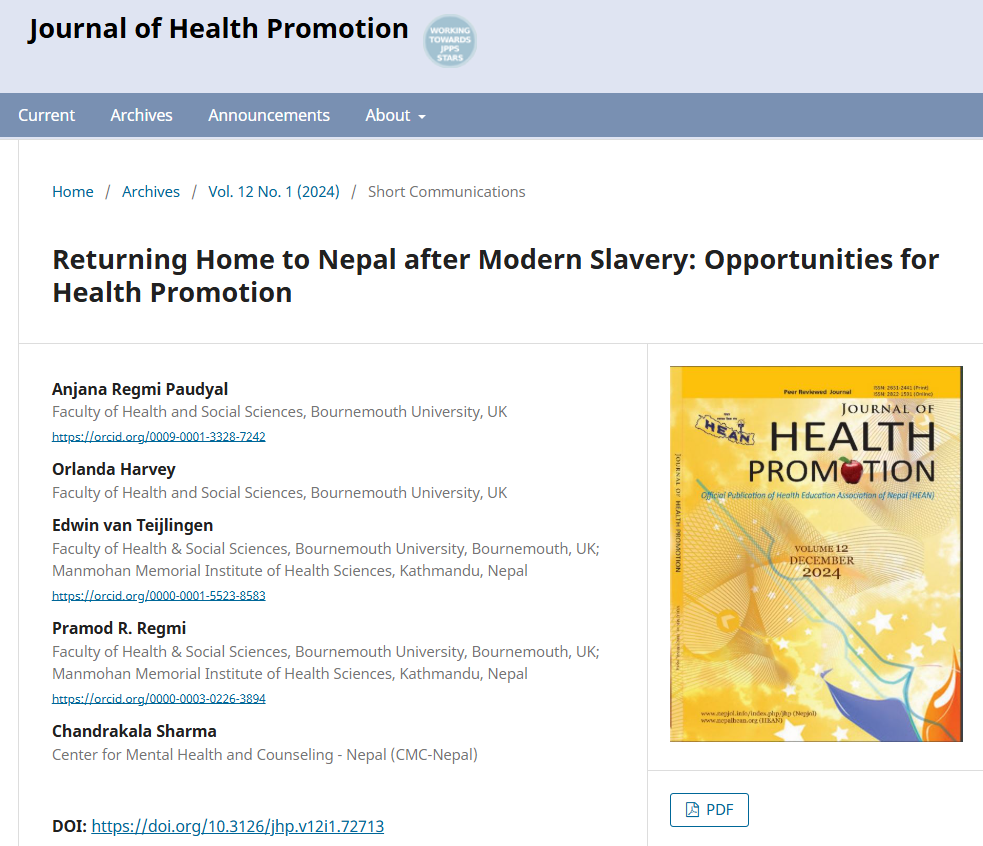
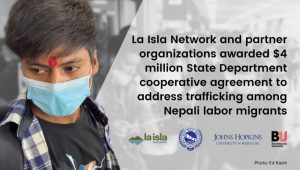
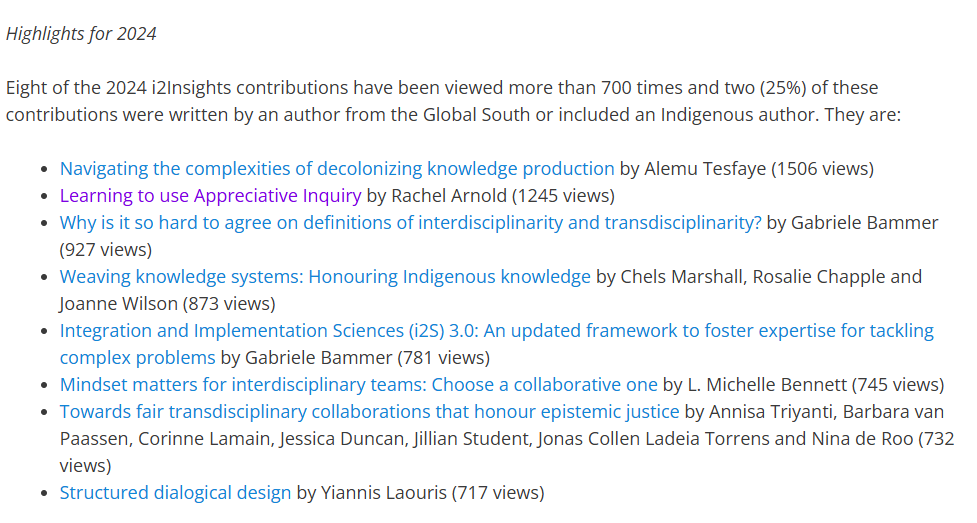
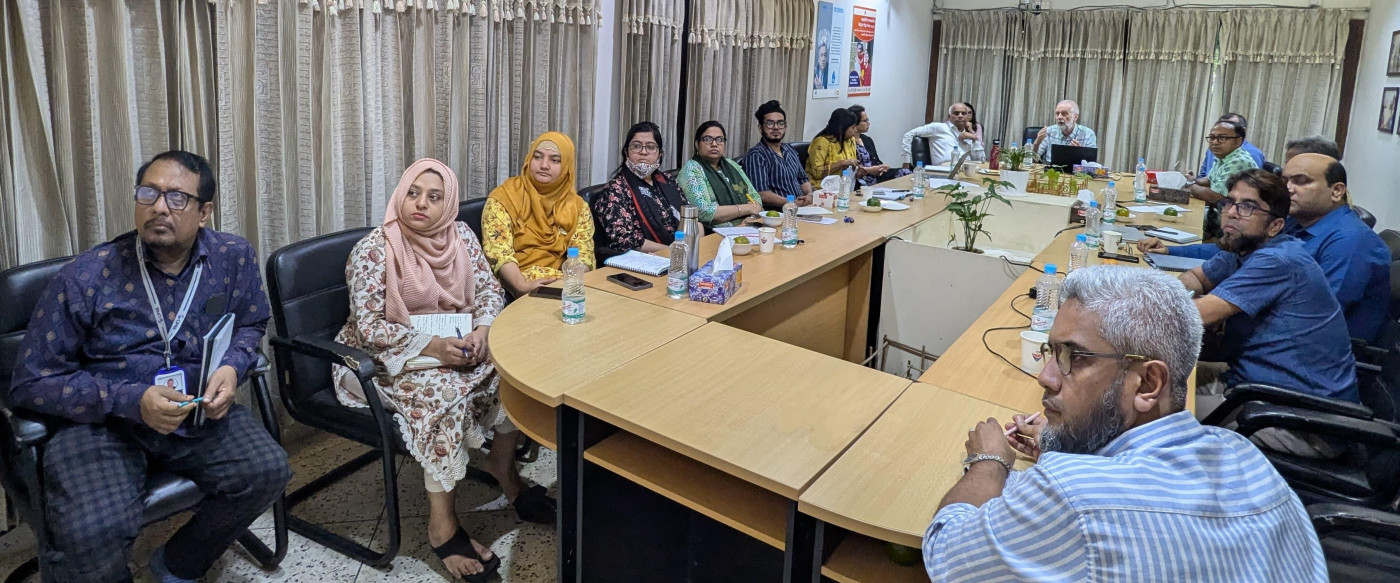
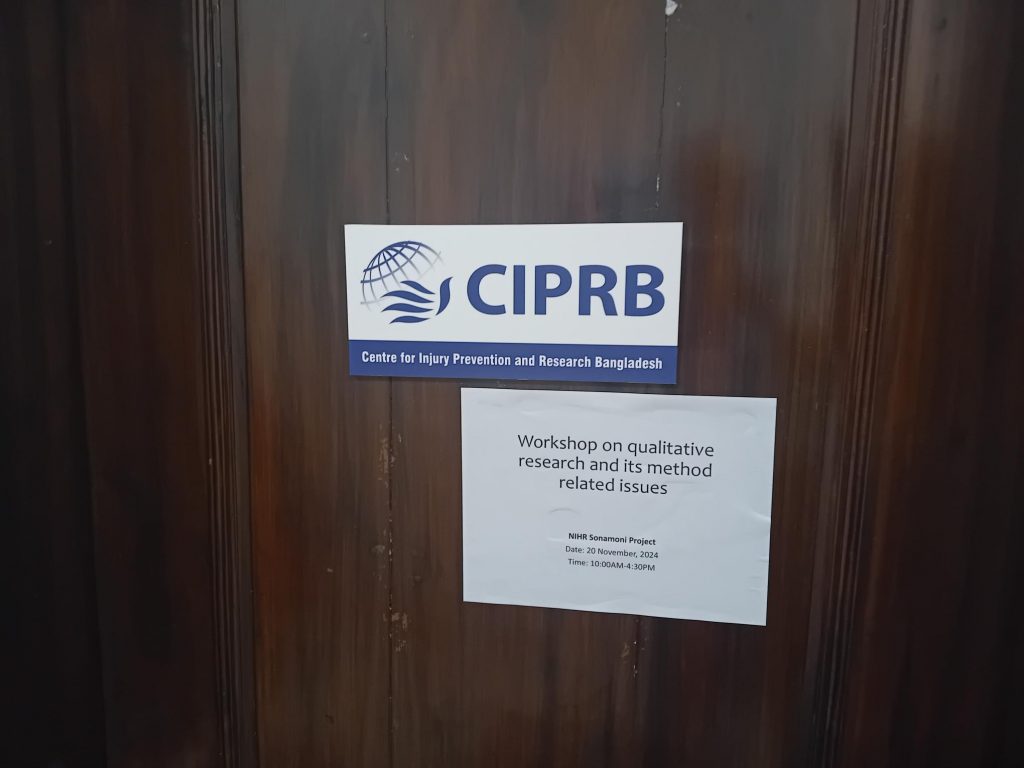
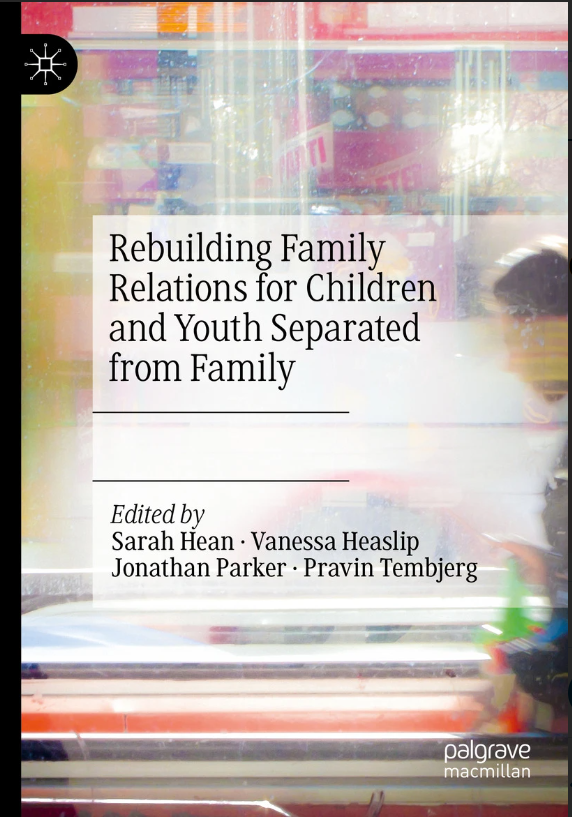
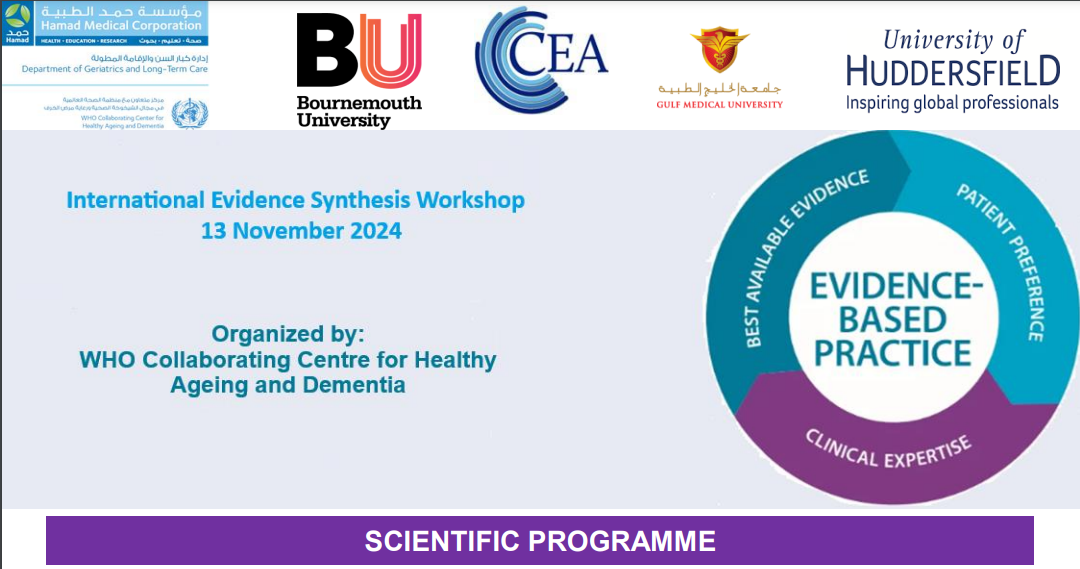
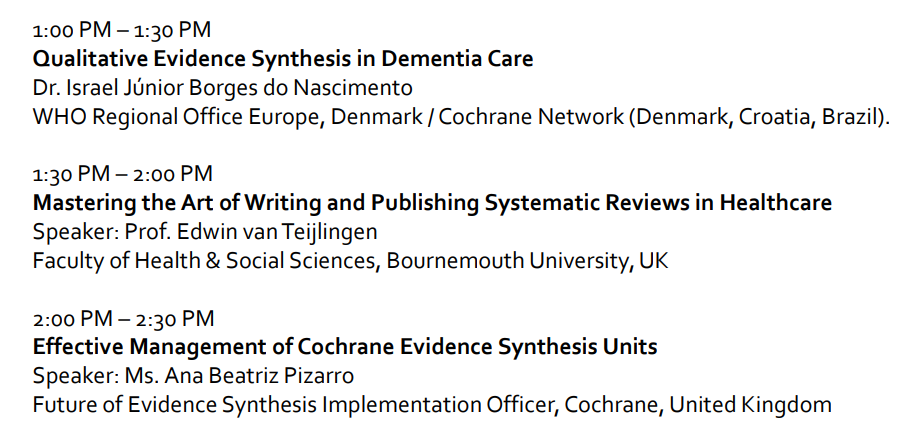
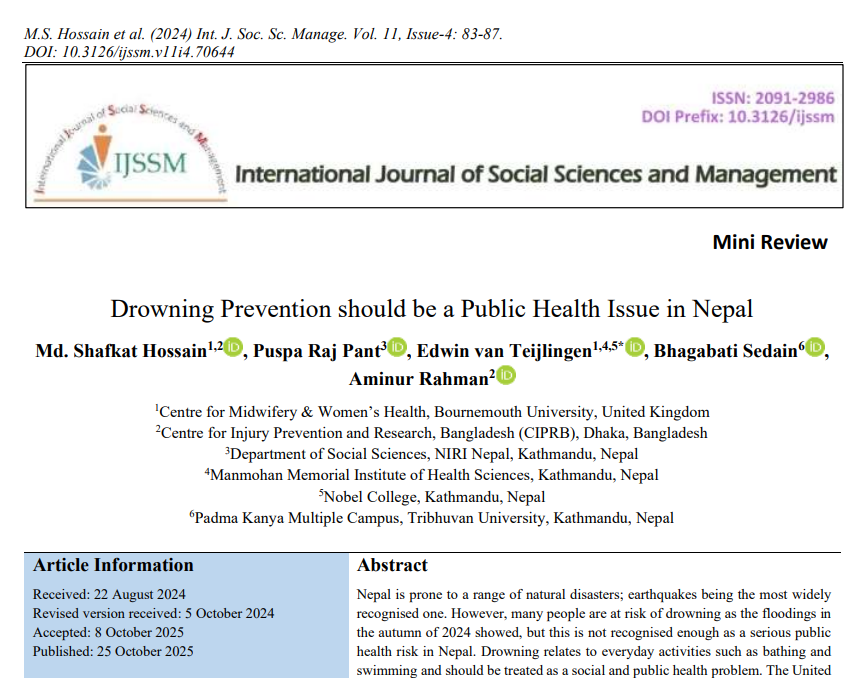
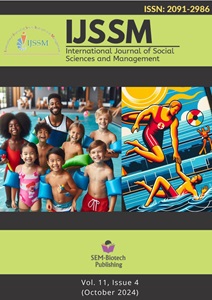




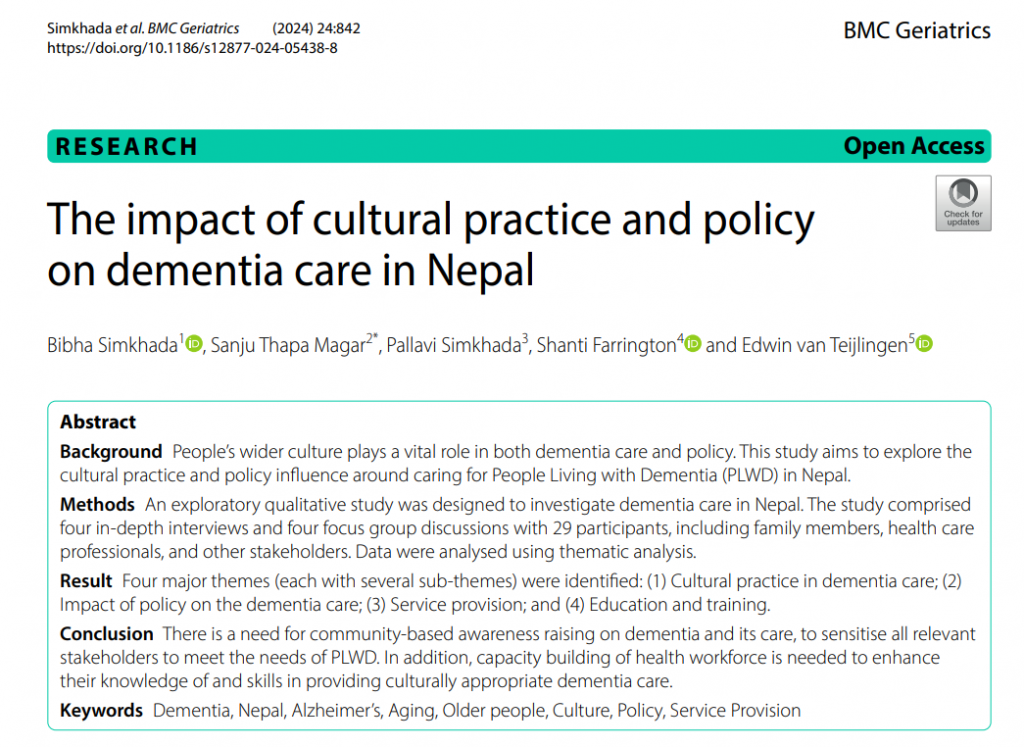

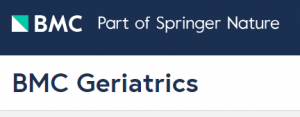
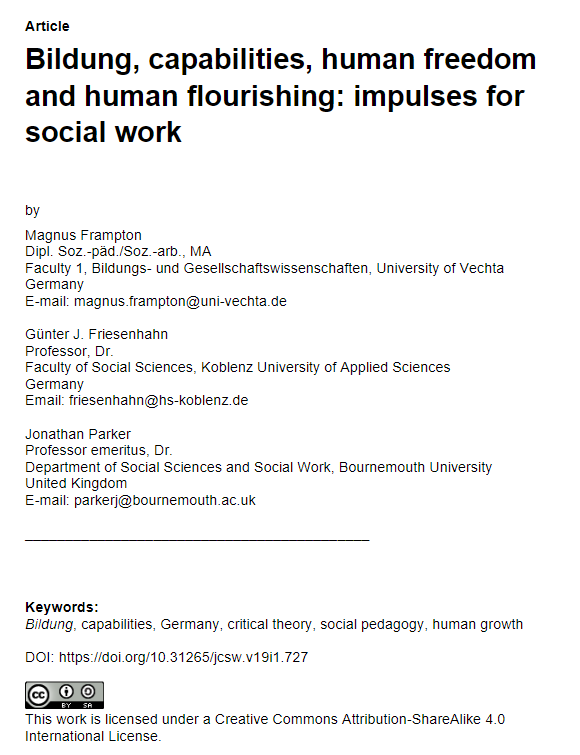
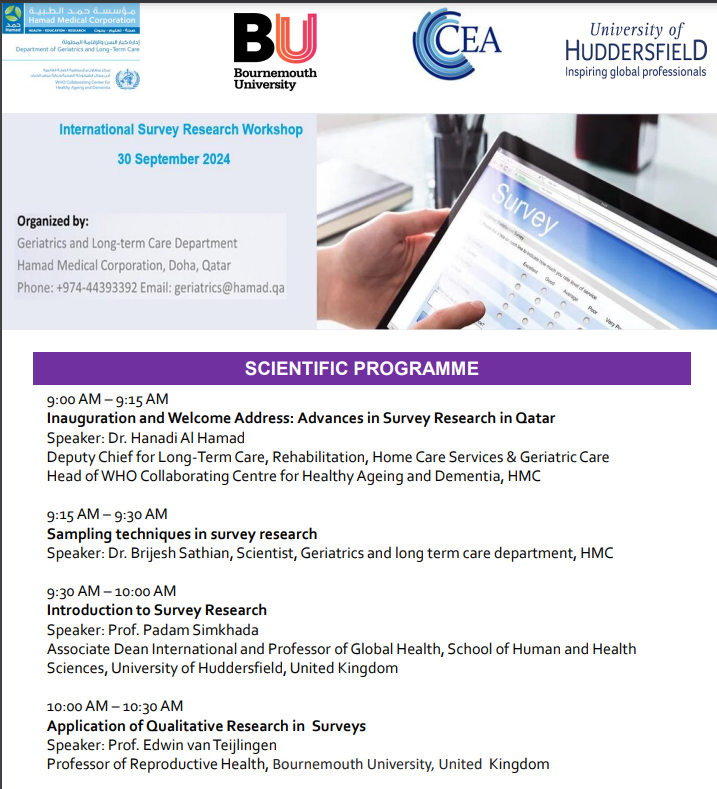












 New CMWH paper on maternity care
New CMWH paper on maternity care From Sustainable Research to Sustainable Research Lives: Reflections from the SPROUT Network Event
From Sustainable Research to Sustainable Research Lives: Reflections from the SPROUT Network Event REF Code of Practice consultation is open!
REF Code of Practice consultation is open! ECR Funding Open Call: Research Culture & Community Grant – Apply now
ECR Funding Open Call: Research Culture & Community Grant – Apply now ECR Funding Open Call: Research Culture & Community Grant – Application Deadline Friday 12 December
ECR Funding Open Call: Research Culture & Community Grant – Application Deadline Friday 12 December MSCA Postdoctoral Fellowships 2025 Call
MSCA Postdoctoral Fellowships 2025 Call ERC Advanced Grant 2025 Webinar
ERC Advanced Grant 2025 Webinar Update on UKRO services
Update on UKRO services European research project exploring use of ‘virtual twins’ to better manage metabolic associated fatty liver disease
European research project exploring use of ‘virtual twins’ to better manage metabolic associated fatty liver disease